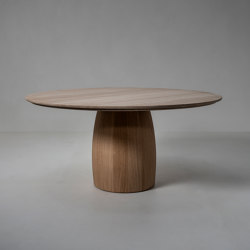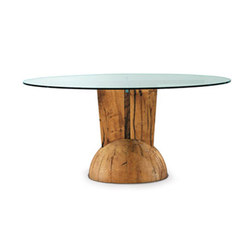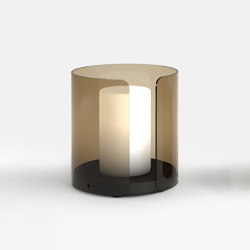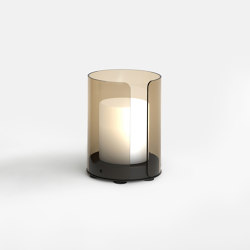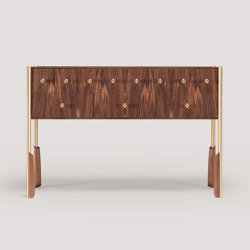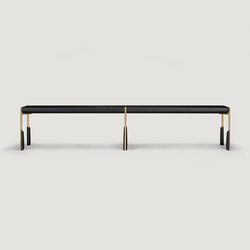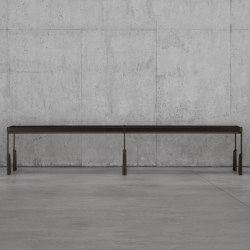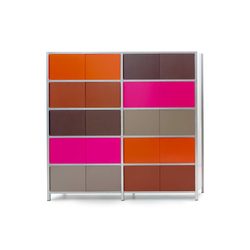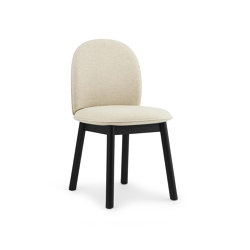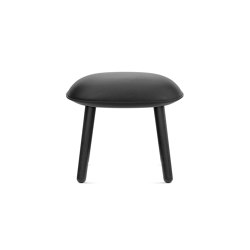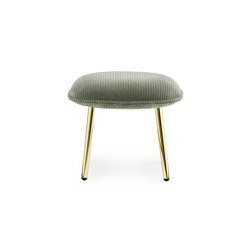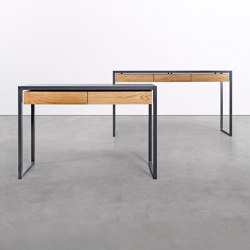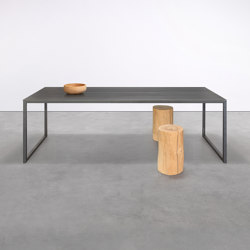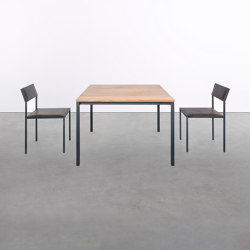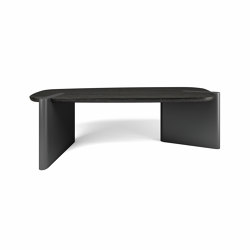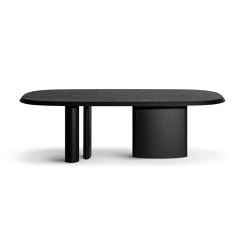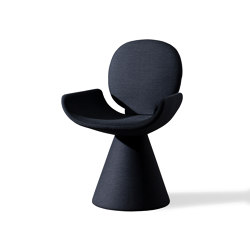Pandanus
Dining tables from Riva 1920, Designed by Durie Design
Product description
Round table made entirely of solid wood with glued slats and one central legs with a range from cedar Vulcano.
Finishing: base of oil / natural wax of vegetable origin with pine extracts.
Quotation Jamie Durie
The Pandanus Pedestal table’s form is inspired by Pandanus leucanthus or better known as Pandanus, Screw Palm. Almost extra-terrestrial in appearance, with strappy leaves, a stout trunk and often exposed and discer- nible roots, this tree truly commands attention! The gnarly, growth marked trunk was particularly of interest to me when imagining this table.
Nature delivers unarguably the most sophisticated, perfectly evolved and harmonious forms in any category one examines. The Pandanus has always been a standout to me, given that it survives in the toughest of envi- ronments, in sandy, highly erosive soil, harsh winds and frontline salt-laden environments. Yet even in the face of all this adversity, it ourishes, generating vibrant green swirly leaf formations, majestic and powerful lateral branches and highly structural stabilising roots at the base of its trunk, it makes a perfect inspiration to for a structural base to a stone-topped table.
The solid cedar base offers a noble foundation to the table and mixed with the delicate introduction of a thin sheet of grey limestone, it pays homage to the elegant and re ned balance between the leaves and branches which emanate laterally from the tree’s upright trunk and which also seemingly hover above the ground. The nely car- ved, swirl edge of the stone takes its que from the twisted leaf formation that makes the screw pine famous. The base, hardened and preserved with the Japanese burnt wood technique ‘ShouSugi Ban’, has been milk-washed with a driftwood nish to point towards the oceanside origins of these majestic palms. Finally, the timber base pierces through the stone top to create a powerful connection between the two materials.
Ø.160 H.75
Finishing: base of oil / natural wax of vegetable origin with pine extracts.
Quotation Jamie Durie
The Pandanus Pedestal table’s form is inspired by Pandanus leucanthus or better known as Pandanus, Screw Palm. Almost extra-terrestrial in appearance, with strappy leaves, a stout trunk and often exposed and discer- nible roots, this tree truly commands attention! The gnarly, growth marked trunk was particularly of interest to me when imagining this table.
Nature delivers unarguably the most sophisticated, perfectly evolved and harmonious forms in any category one examines. The Pandanus has always been a standout to me, given that it survives in the toughest of envi- ronments, in sandy, highly erosive soil, harsh winds and frontline salt-laden environments. Yet even in the face of all this adversity, it ourishes, generating vibrant green swirly leaf formations, majestic and powerful lateral branches and highly structural stabilising roots at the base of its trunk, it makes a perfect inspiration to for a structural base to a stone-topped table.
The solid cedar base offers a noble foundation to the table and mixed with the delicate introduction of a thin sheet of grey limestone, it pays homage to the elegant and re ned balance between the leaves and branches which emanate laterally from the tree’s upright trunk and which also seemingly hover above the ground. The nely car- ved, swirl edge of the stone takes its que from the twisted leaf formation that makes the screw pine famous. The base, hardened and preserved with the Japanese burnt wood technique ‘ShouSugi Ban’, has been milk-washed with a driftwood nish to point towards the oceanside origins of these majestic palms. Finally, the timber base pierces through the stone top to create a powerful connection between the two materials.
Ø.160 H.75
More about this product
Part of the collection
TABLES.
Manufacturer
Riva 1920
Family
Architonic ID
1551513
Year of Launch
2018
Similar products
This product has been discontinued and archived. Product information may no longer be up to date.
-pro-sq-arcit18.jpg)
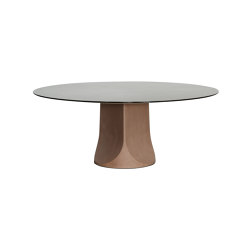
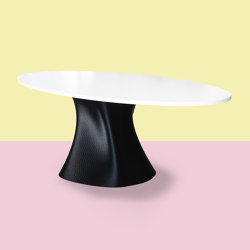
-pro-sq-arcit18.jpg)
-pro-sq-arcit18.jpg)
-pro-sq-arcit18.jpg)
-pro-sq-arcit18.jpg)
